I’d like you to hear my new compost song. But it needs an intro. Erin’s wife, Amy, our newest daughter, thinks I like her. True, but not for what she thinks. She thinks it’s her ravishing good looks, her love of Erin, her way of saying things that bring the best out of us like “You’re dead to me!” What matters to me is she adores my song. We first met at camp, on the Oregon coast when Amy was in college and part of a retreat I led on earth care where the song premiered. Others thought it silly. Amy knew it was bound for international acclaim! Later when she and Erin worked at the same camp, they called us in a panic. The manager hadn’t heard of recycling (in 2005)? Staff were digging 5 ft deep in sand to bury tons of table waste from feeding 100-200 campers. We helped build a compost center where camper food became fertilizer for the vegetable gardens Amy was helping develop. Donkeys at this camp had been giving rides to campers for 60 years. As Amy became program director there, she fell in love with them. In fact “donkey poo” was the ingredient giving the heat needed for good compost. So this one’s for Amy and all the people of the pile I’ve met across the years and for everything we love the most.
C-O-M-P-O-S-T
Words & music by John Pitney
(If you want to download the MP3, click here)
LYRICS:
C-O-M-P-O-S-T compost, compost, that’s for me!
Everything I love, you see, goes in the compost bin:
Sunday Spuds
Monday Stew, lunchtime cruds, donkey poo,
Tuesday’s Cookies filled with fig,
Wednesday’s Weeds and Grandma’s wig
Thursday’s Breakfast shot with sugars
Friday’s Napkins, Grandpa’s boogars!
By Saturday the heatwaves rise from fungus and bacteriis.
Now this microcosmic host takes the stuff that’s dead and gross,
Takes this junk I love the most, and makes it live again.
While I slumber full of dreams it makes my garden grin.
Sometimes the crap of the world is just too much. I know you’ve been there: three more school shootings along with the 20th anniversaries of Columbine and Thurston, our President and Kim Jong-un engaging in an adolescent game of spin the bottle with the future of all life, another racist tweet and the on-going sagas of sexual assaults by the Perp-In-Chief meant only to distract us from the wholesale assault on our Mother planet and her most vulnerable. When I’m feeling dead and the world around me is just plain gross, it’s time to go to the compost bin, where, at least in my small reality, good things always rise from the dead.
From my beginnings on the dairy farm in a culture of manure, compost has sustained my faith for living in a way most other experience doesn’t. In my adult life I’ve tried most ways of controlled rotting and observed many others outside our control. The smells captivate me, the liveliness of decay and putrification calls to me, somehow. I’m not sure about it, but the cycle of conception and birth, life, death and decay is most likely to bring me into its imagination when I’m most afraid of dying. It reminds me that life only comes around through a letting go, a relinquishing and death to what we know. Without it existence sucks because there’s never anything new under the sun until the old is thoroughly decomposed and forgotten.
When our kids were in elementary school we often built a huge compost pile in the fall. We’d borrow a friend’s pickup and drive the neighborhood scrounging mountains of fallen leaves as people raked them into the street. We’d layer the leaves with whatever manures we could find from local farms and other nitrogen sources laying around. One year a gardening friend suggested we build our pile around a couple big fenceposts and then, when the pile was done, pull out the posts. So we tried it. We stacked and tramped the pile till it was a solid 4X8 feet wide and long and at least 4 feet high, a big bread loaf looking formation in the back corner of the garden. Pulling out the posts left two holes 6 inches in diameter about 2 feet from each end of the pile. I would get up early each morning to check the pile for any signs of liveliness. It may seem like a small thing, but I remember the first day it began to work! It was a crisp autumn morning. The sun was sending its earliest rays into that compost corner in back. The two holes had become chimneys channeling the microcosmic heat to rise from the pile. As the warmth encountered the cool morning air it became two plumes of steam illumined by the low shafts of sunlight.
It amazed me and, in remembering, amazes me still. Many spiritual traditions perceive the Divine coming down from above and the not-Divine emerging from below. Heaven’s up, hell is down. Compost makes a much better cosmology. Oh I get the uppityness of God, I picked that up in church even as I experienced a more holistic divinity at home. But friends, if we are to have any chance of turning back the wholesale assault of the money-grabbers, mountain top movers and frackers on our Earth Mother, we must really begin to believe in the holiness of what is beneath. We must get down with that.
Our yard bordered on the playground of the elementary school our children attended. So it was easy to bring classrooms of kids to gather around our compost pile to experience the magic. Our daughter Erin’s class came twice, a week apart. The first time, we buried jars of water in the pile and containers holding hotdogs and eggs. A week later, on another cold autumn day, everyone drank hot chocolate made of the composted water. We got to sample the hot dogs and soft-cooked eggs. We talked about collecting methane from landfills to power vehicles and the students imagined cars of the future filling their tanks with compost instead of gasoline. Together we dreamed a different kind of world.
It’s been three decades since that first smoking pile. I was drawn to it and its plumes of stream rising as to an altar. Compost is no longer what I do but who I am. If I’m paying attention, if we’re paying attention, we can learn the lessons of the pile. Our little time in the universe isn’t, alone, so significant. In a twinkling we’re born, we live and we’re compost. And yet, in our little time, our people and the greed of those in power have pretty much used up all the riches of the Earth as if we would be the last generation to live here. It is not we who make the heat of the heap, who rise to make ourselves known in the cold of dawn. It’s not about us. And the sooner we learn it the sooner we’ll be saved. It’s the tiny lives invisible to us who do their destiny of decomposition and renewal without us and keep on running the world while we sleep.

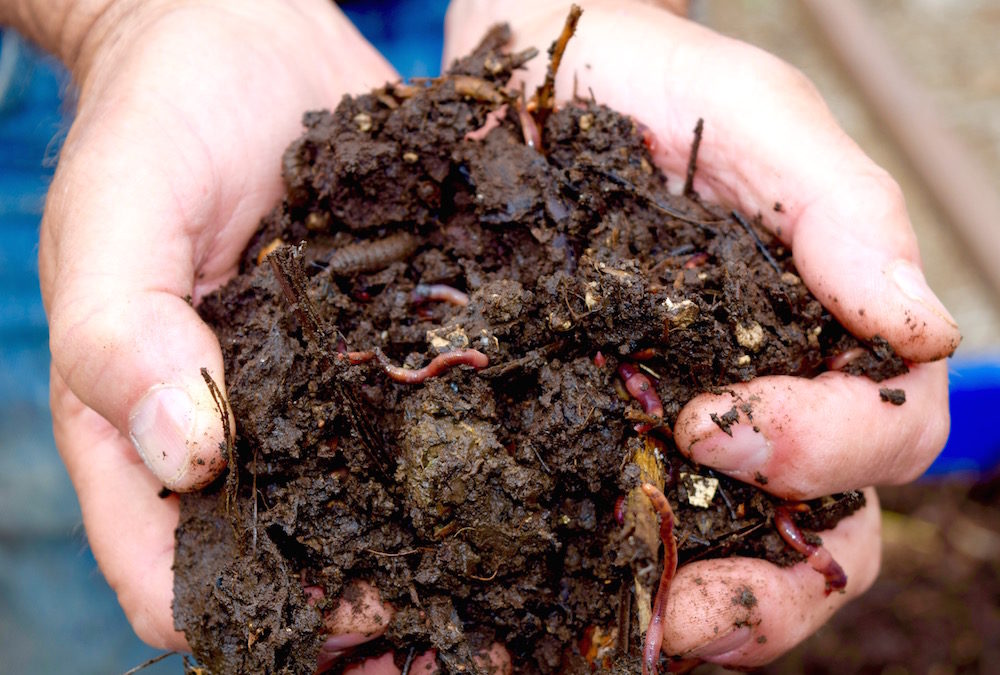
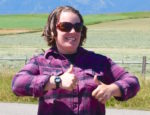
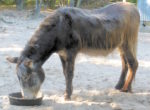
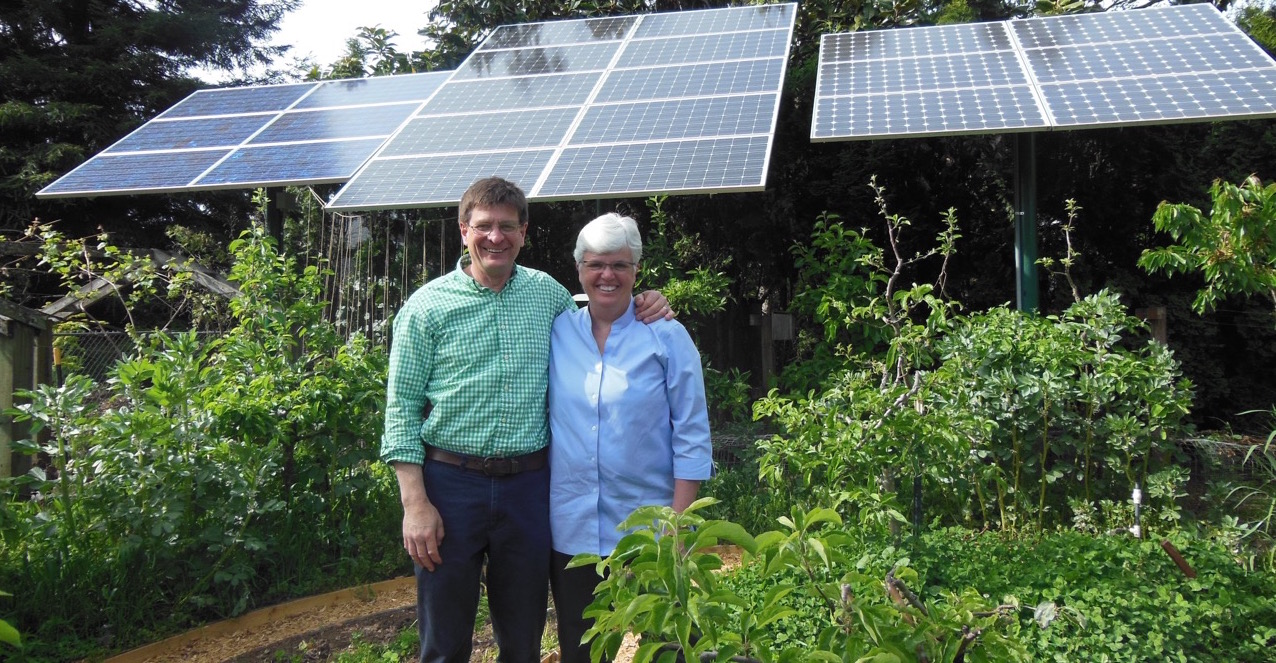


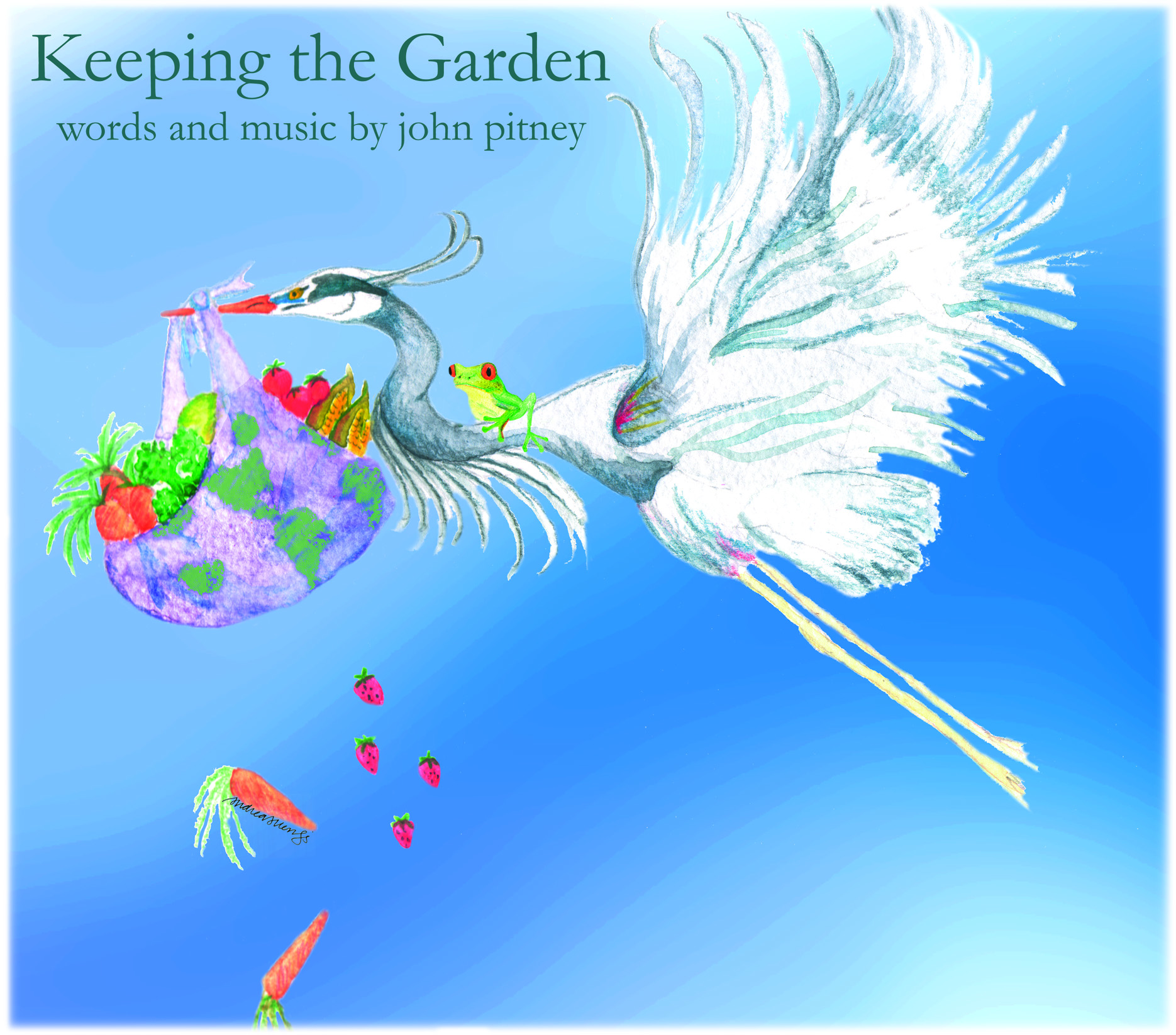
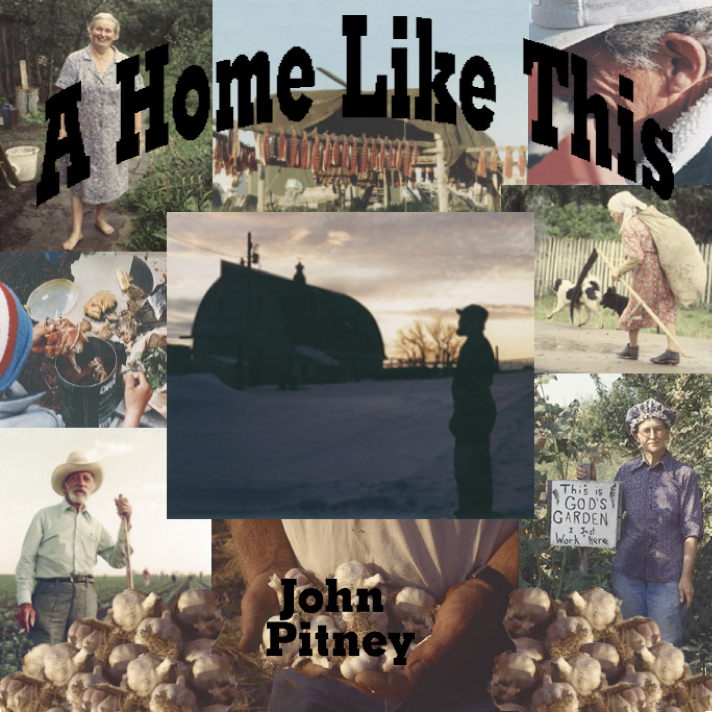
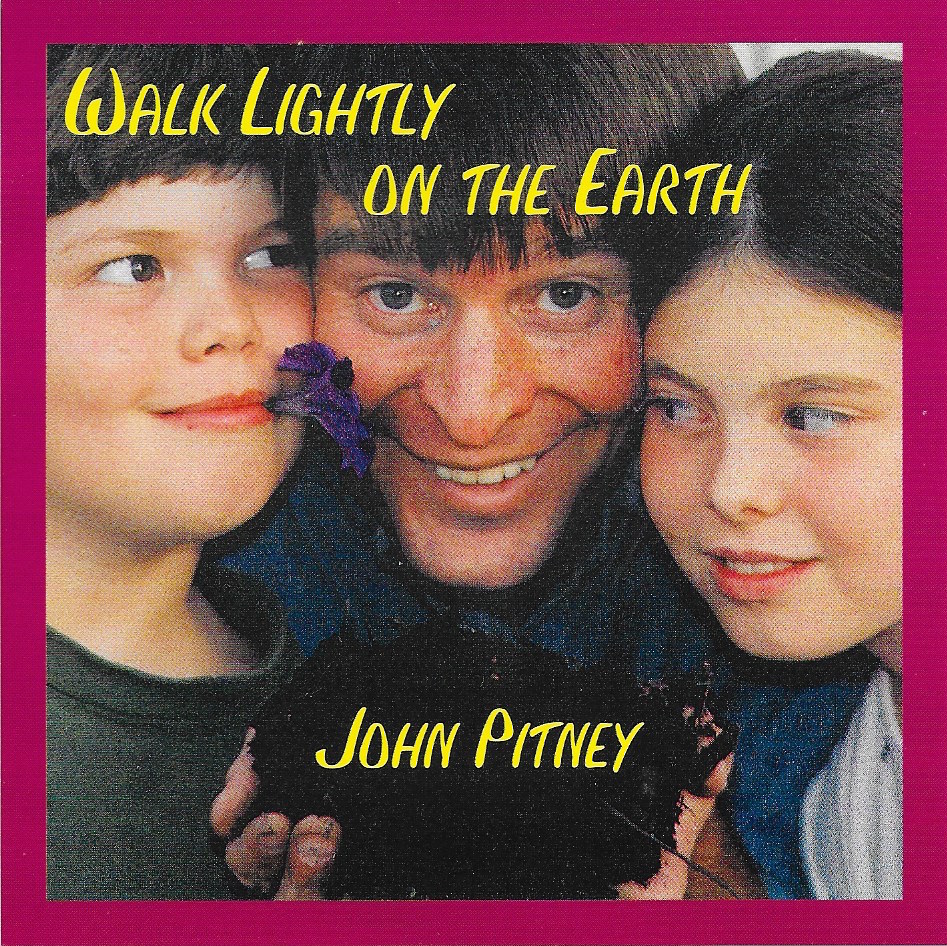
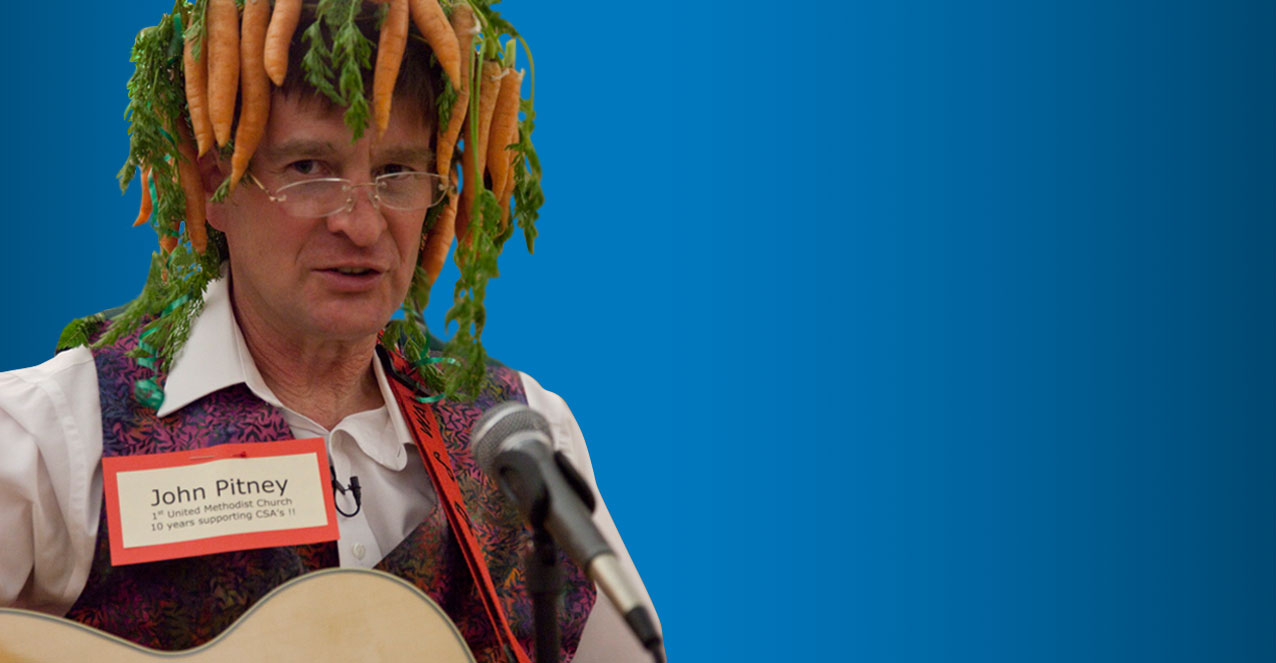
Well. Hmm. I think it will be easier to get congregations down here to sing some of your older songs, but who knows? I might run into an inveterate composter like yourself sometime soon! Where’d you find the harmonica player? And who’s tagging along on the harmony part? Congratulations for just keeping on keeping on, given the frightening state of conflict all around us. be well, brother – yer sister Trudy